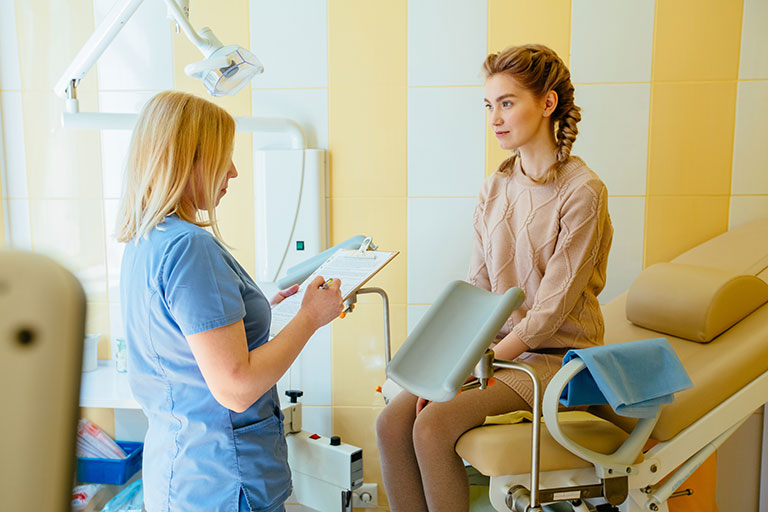Planning To Get Pregnant

Female Fertility: How your living standards matter
The kind of lifestyle you live as a woman can affect your chances of conception. If you have plans to get pregnant, take a look at some of these procedures.
Pregnancy in women depends on fertility conditions. As a woman, you may be planning to conceive and might be considering your fertility and how you can improve your chances of conception.
Medical conditions and some other factors might play a role in your ability to get pregnant, and they may be out of your control. Your lifestyle choices influence your chances of conception however, so there are things you need to know so you can protect and improve your fertility.
What's female fertility all about?
The capacity of a woman to conceive a biological child is described as female fertility. Your fertility may be in question if you have been making an effort to get pregnant with regular, unprotected sex for a minimum of 1 year or 6 months (if you're above 35 years) without positive result.
What are the causes of female infertility?
Several medical problems can be responsible for female fertility issues, and they include:
- Cervical or uterine abnormalities like polyps or fibroids in the uterus
- Abnormal ovulation which affects the ability of the ovaries to release eggs. They include hormonal disorders like hyperprolactinemia, polycystic ovary syndrome, and thyroid problems (hypothyroidism or hyperthyroidism)
- Medical problems linked with the absence of a menstrual cycle, like celiac disease, some auto-immune diseases such as lupus, and poorly controlled diabetes
- Endometriosis which is a condition where the tissue lining the inside of the uterus grows outside the uterus
- Blockage or damage of fallopian tube, often caused by pelvic inflammatory disease (PID)
- Pelvic adhesions as a result of bands of scar tissue that binds organs after appendicitis, pelvic infection, pelvic or abnormal surgery
- Early menopause (primary ovarian insufficiency) which happens when the ovaries are no longer working and menstrual cycle ceases before the age of 40
Age is another factor. As women age, there is a marked decrease in the quality and quantity of your eggs which can cause difficulty in falling pregnant.
How to promote female fertility
Living a healthy life can improve your fertility. Also, consider the following:
- Avoid sexually transmitted diseases (STIs) - Common STIs like gonorrhoea and chlamydia are the primary cause of female infertility
- Keep a healthy body weight - If you are obese or significantly underweight, there may be a disturbance in your regular ovulation. Do consult your doctor to know the right body weight for pregnancy
- If possible, avoid the night shift - A regular night shift may increase the risk of infertility by affecting your hormone production. As much as you can, get enough sleep when you're back from working the night shift
It is true that stress will not prevent you from getting pregnant, but try reducing stress and adopt healthy coping methods like relaxation techniques if you want to get pregnant.
Precautionary measures
The perks of living a healthy lifestyle cannot be overemphasised. In addition to this, protect your fertility with the following rules:
- Quit smoking - The use of tobacco lowers the rate of fertility. Smoking causes the ovaries to become older and the eggs premature. Should you need help with quitting the habit of smoking, consult your family doctor or healthcare provider
- Reduce your alcohol intake - Ovulation disorders are increased by too much drinking. Avoid alcohol if you are planning to get pregnant. It is generally recommended that for a safe pregnancy, abstinence from alcohol at conception and during pregnancy is vital. Again, there is no established, safe level of fetal alcohol consumption.
- Protect yourself from toxins - Exposure to toxins and pollutants in the environment like lead, pesticides, insecticides, dry cleaning solvent, and others can affect your fertility negatively.
- Don't over-exercise - Excessive, energetic physical activity can impede ovulation and lower the production of progesterone. Reduce too much physical activity to less than 5 hours a week if you have a healthy weight and considering getting pregnant
- Reduce caffeine consumption - Your fertility may not be affected when you take caffeinated drinks or foods below 200mg daily. Should you think of getting pregnant, lower your daily consumption of caffeine to one or two 6 to 8-ounce cups of coffee
In Conclusion
Do you want to get pregnant? Are you thinking of the effect of your lifestyle choices on your fertility? See your doctor or healthcare provider. They can provide advice on how to enhance your fertility and increase your chances of conceiving.
Remember that the period of pregnancy can be a whole new experience, especially if it's your first time. To ensure you and your baby stay healthy, take care to maintain proper hygiene at all time.
Women’s Health is Our Passion
Live life to the fullest with our range of Consultant-led gynaecological services.
BOOK ONLINE NOW Click To View Full Map
Click To View Full Map
Contact Info
Phone: 020 7183 0692
Email: info@gynaeuk.com
Address:
Suite B,117A Harley St
Marylebone, London
W1G 6AT, UK
Opening Hours
Mon - Fri : 9:00 - 18:00
Sat - Sun : Closed for now

